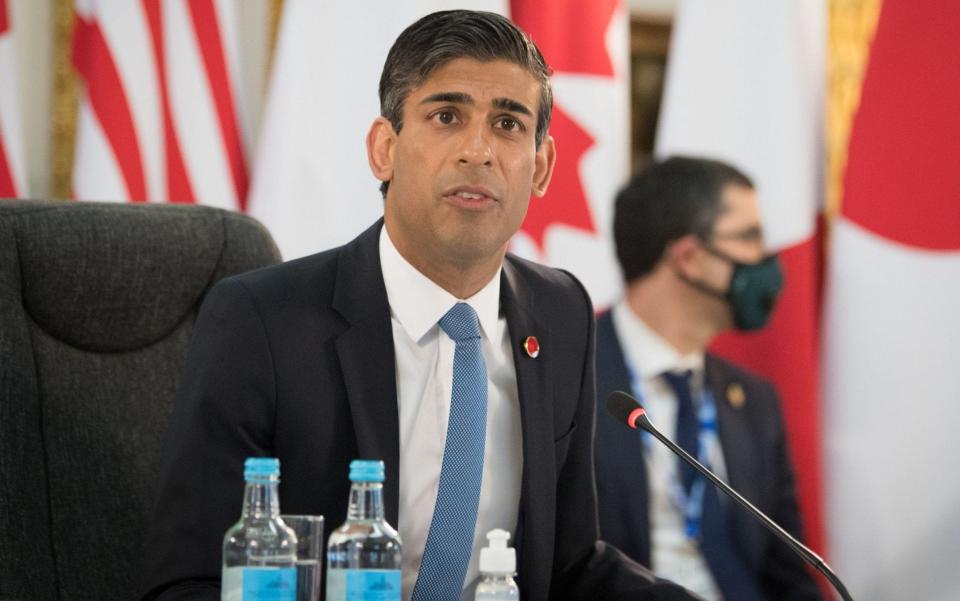Pensions raid to pay for Covid pandemic

Treasury officials are drawing up plans for a pensions tax raid in the autumn to help pay for heightened public spending during the Covid pandemic, The Telegraph understands.
Three different reforms to the way in which pension contributions are taxed are being considered amid pressure on the public finances, according to well-placed Whitehall sources.
One of the ideas being examined is reducing the pensions lifetime allowance from a little above £1 million to £800,000 or £900,000, lowering the point above which extra tax charges kick in.
Another would see individuals contributing to pensions getting the same rate of tax relief, meaning higher-rate taxpayers lose out, while a third is new taxation on employer contributions.
"Our job is to keep people out of poverty, not to enrich the middle classes," said a senior government source familiar with the proposals, which are still at the exploratory stage.
Watch: When should I start paying into a pension?
Downing Street and the Treasury are locked in debate about how to pay for the public spending spike seen as the Government moved to prop up the economy during the pandemic.
Rishi Sunak, the Chancellor, who sees himself as a low tax Tory, has vowed to try to rebalance the public finances and officials see pensions tax changes as one way to help achieve that.
But Boris Johnson has said there will be no return to austerity and has made expensive policy promises, both at the last election and more recently, on issues such as tackling climate change.
Well-placed figures believe pensions tax reform could be included in the Autumn Statement, due in November, when the new spending levels for government departments are revealed.
On Sunday night, a Treasury source close to Mr Sunak played down the likelihood of an imminent overhaul, stressing that he is opposed to raising taxes on families.
Downing Street moved to dismiss the possibility of breaking its "triple lock" on pensions on Sunday, noting that the policy remained the Government's position.
It promises that each year state pensions will rise by whichever is highest – average earnings, inflation or 2.5 per cent. But average earnings have jumped by around six per cent during the Covid crisis as lower-paid jobs were lost, triggering a similar rise in pensions.
There is concern in the Treasury about the cost implications of the rise, with the door still open to a change – such as a tweaked definition of average earnings or even a year-long delay – in the autumn. Government departments are being urged to put forward their proposals for future spending.
The Telegraph understands that figures in the Treasury are interested in major changes to the tax rules for pension contributions as a way of boosting revenues. The Tories promised in their manifesto not to raise the rates of income tax, national insurance or VAT – meaning the usual big revenue-raising levers are not available to Mr Sunak.
The senior government source said: "You can't increase income tax, you can't increase national insurance rate. I don't think the Chancellor wants to increase capital gains tax. Pensions tax reform would work politically because the short-term impact on an annual basis would be virtually imperceptible for most people."
Watch: How to save money on a low income
One idea being looked at would see the pensions lifetime allowance lowered from around £1,073,000 to £800,000 or £900,000. Pensions savings above that amount incur a 55 per cent tax charge if they are withdrawn as a cash lump sum or 25 per cent if they are withdrawn as an income.
Lowering the allowance would mean more people paying tax to withdraw their pensions in the long term. Mr Sunak froze the allowance earlier this year, showing a willingness to change the threshold.
A second idea would be a single rate of tax relief for pension contributions. Higher-rate taxpayers who put money towards their pension each year tax free currently get a tax relief rate of 40 per cent, but lower earners who do the same get 20 per cent.
Critics argue this means higher earners getting more support from the Government, and the Treasury is understood to be looking at a single tax relief rate of around 30 per cent. A third change being considered is to employers who can contribute to their employees' pension pots each year tax free, with a tax increase of some kind being mulled over.
Steve Webb, a former pensions minister who is now a partner at consultants Lane Clark & Peacock, warned that the changes would hit Tory voters and be politically risky.
"If you want 200 more Chesham and Amershams, put together a package like this on pensions tax relief," he said.
"It's absolutely targeting your base. It is people who are working, earning a good wage and being frugal. Of all subjects, pensions should be a long-term business. People are planning for a generation. What they can't have is constant chopping and changing of the pension rules because the country is broke."
Last week the Conservatives lost the safe seat of Chesham and Amersham, which they had held for almost half a century, to the Liberal Democrats in a by-election.
The shock defeat triggered debate about whether Mr Johnson should put more focus on traditionally Tory principles such as low levels of taxation and a cautious approach to public spending.
Watch: PM calls Chesham and Amersham result ‘disappointing’

 Yahoo Finance
Yahoo Finance 